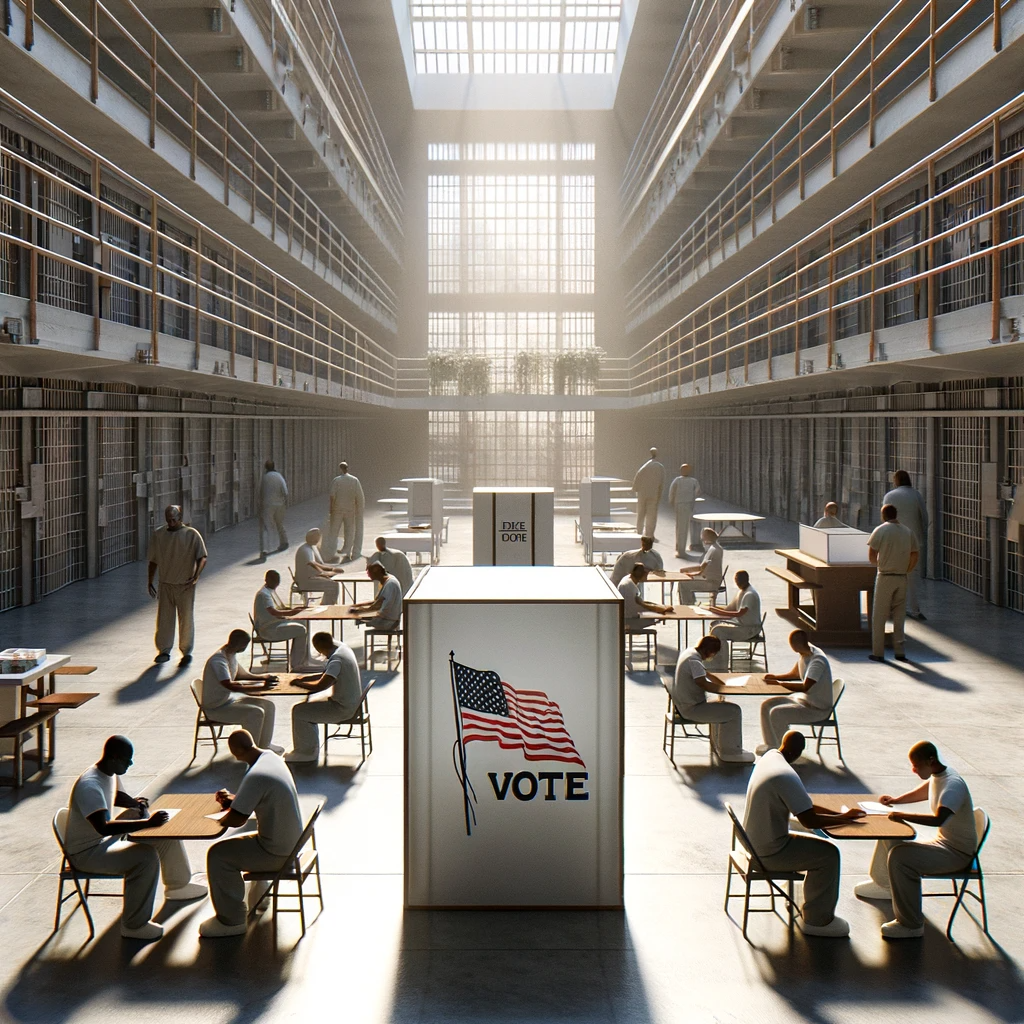Inspired by the Scandinavian Model of Inclusion and Civic Engagement
Non-Voting in prisons is a critical issue that warrants more attention. Extending voting rights to America’s prisons aligns with the principles of democracy and human rights, and serves as a vital component in the habilitation process of incarcerated individuals.

Many organizations which promote criminal justice reform highlights through their advocacy the importance of maintaining civic engagement for those of us incarcerated, such as The Sentencing Project who focuses on promoting voting rights in jails. Currently the denial of voting rights in America’s prison is a loss of a key democratic privilege and a barrier to successful reintegration into society. Voting is a fundamental element of citizenship, and enabling it in prisons could significantly aid in social inclusion and habilitation.
Taking a look at the Scandinavian prison system, which at its core is the principle of Normality, has offered valuable insights. These countries are known for their progressive approach to incarceration, focusing on rehabilitation and reintegration. Within their prison system incarcerated individuals retain their right to vote, reflecting a philosophy that treats them as members of society who are temporarily separated but not excluded. This approach brings several benefits:
- Recognizing voting as a basic human right, Scandinavian countries respect the dignity and worth of every individual in their prison system. “I believe that voting in any nation is not only a right but a responsibility we have as world citizens. It is through our active participation in the democratic process that we can shape the future of our nations and ensure that our voices are heard. Every vote counts, and it is the collective power of our individual choices that drives positive change and progress in society.” – DeAngelo Capone, excerpt from Moving F.A.S.T.
- Allowing incarcerated individuals to vote has proven to help maintain their connection with the larger society, developing a sense of responsibility and involvement in community affairs.
- The act of voting will help incarcerated individuals in US prisons retain our identity as citizens, emphasizing that our sentence does not strip us of our fundamental civic rights and responsibilities.
In terms of process, Scandinavian countries make voting in prisons accessible and inclusive. This involves providing information about voting rights and procedures, ensuring access to voting materials, setting up polling stations within prisons or arranging for postal voting, hosting political debates between candidates, and offering assistance to those needing help understanding the process.
In conclusion, advocating for voting rights in prisons is about more than just allowing individuals to cast ballots; it’s about recognizing our worth as citizens and creating a more responsible, inclusive, and restorative society. The Scandinavian model, with its focus on rehabilitation and civic engagement, offers a blueprint for other countries to create a justice system that not only secures society but also rehabilitates and re-integrates the incarcerated individual. Such an approach could lead to lower recidivism rates and smoother integration of formerly incarcerated individuals back into society. This should be the objective of every prison system.
To Live For The People







